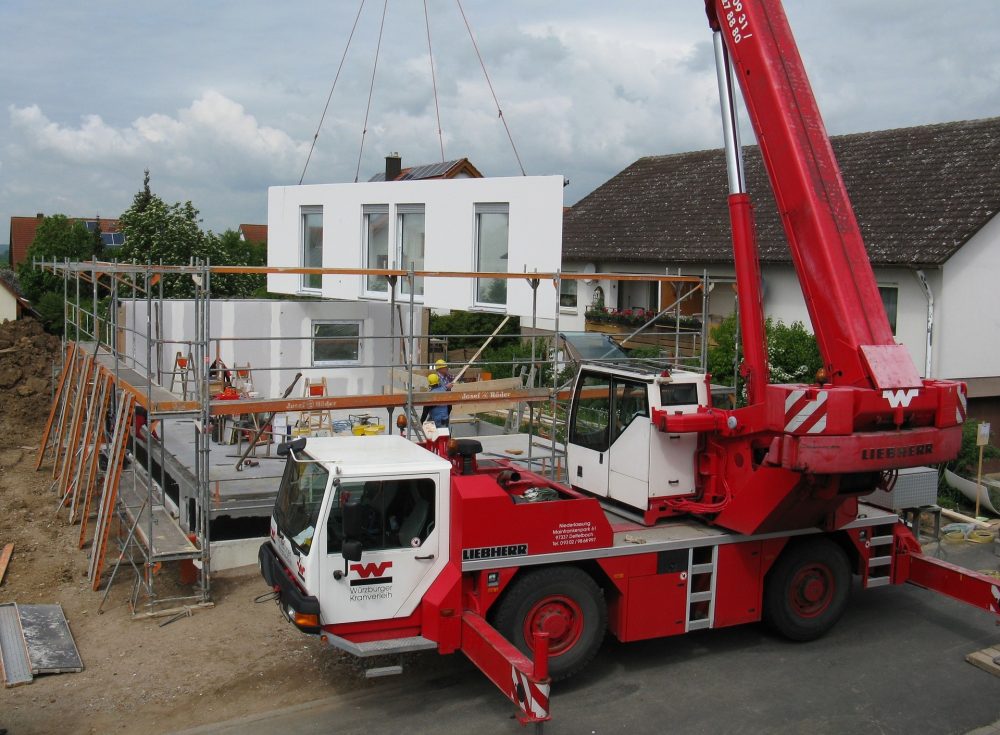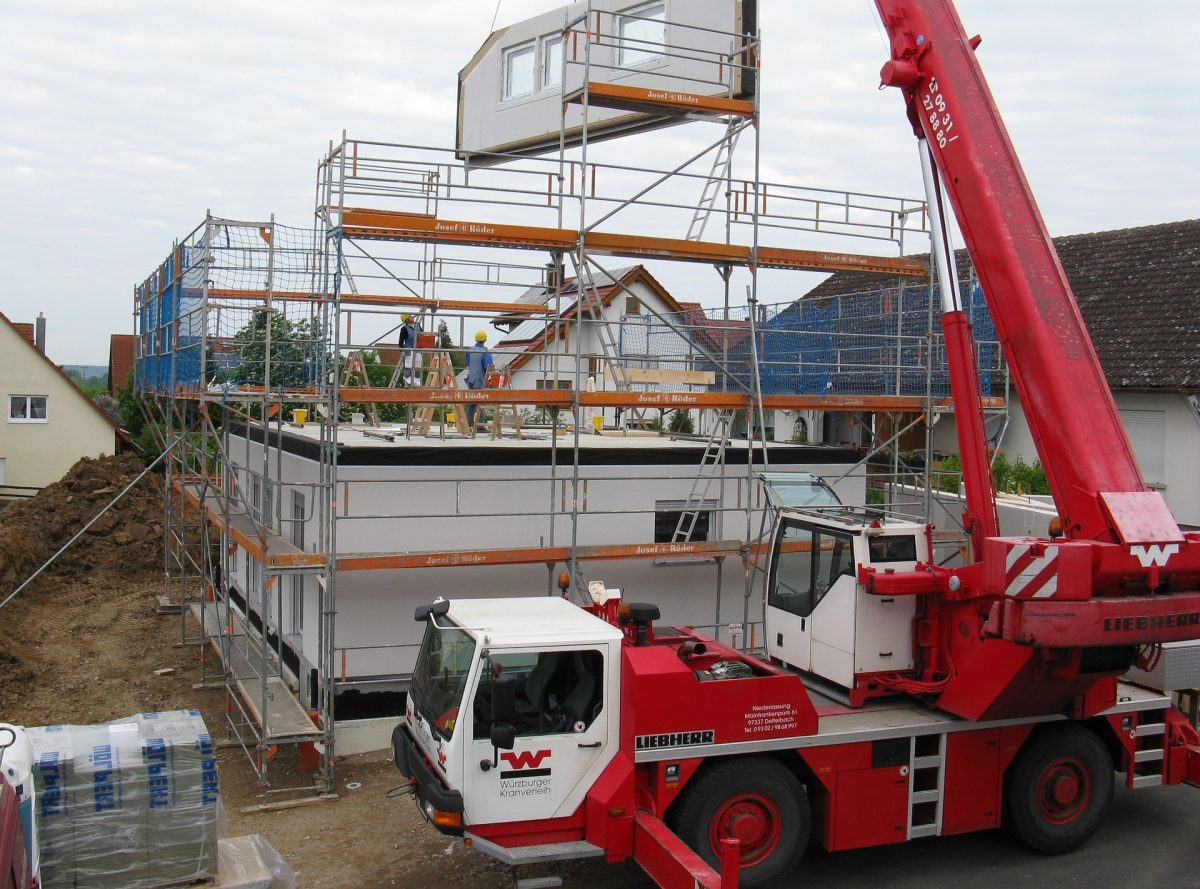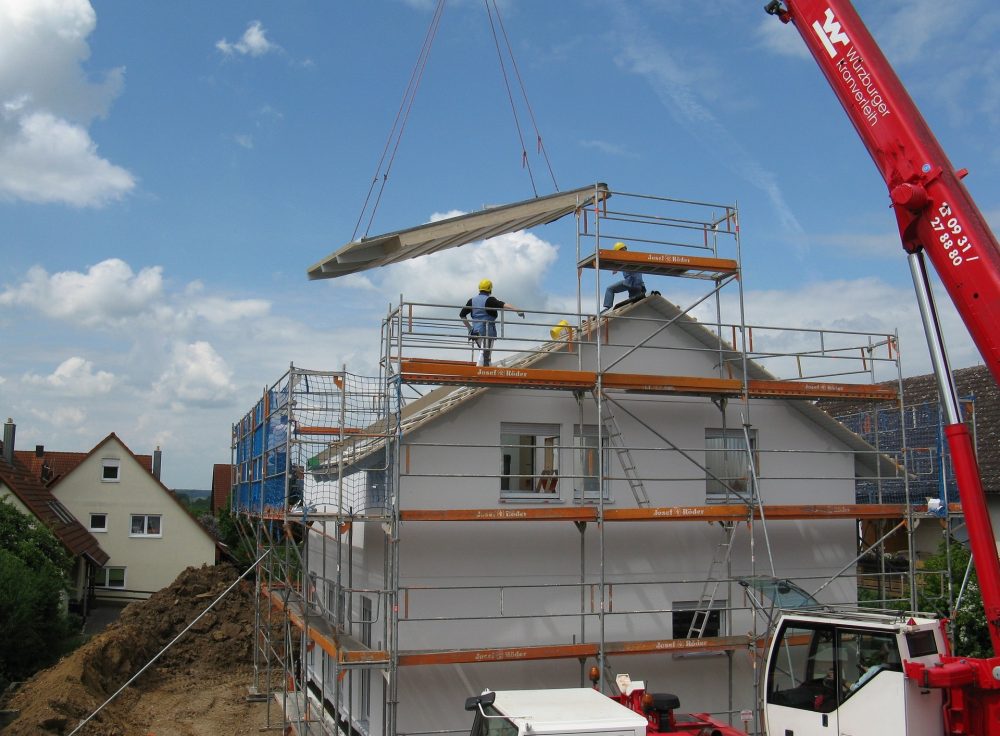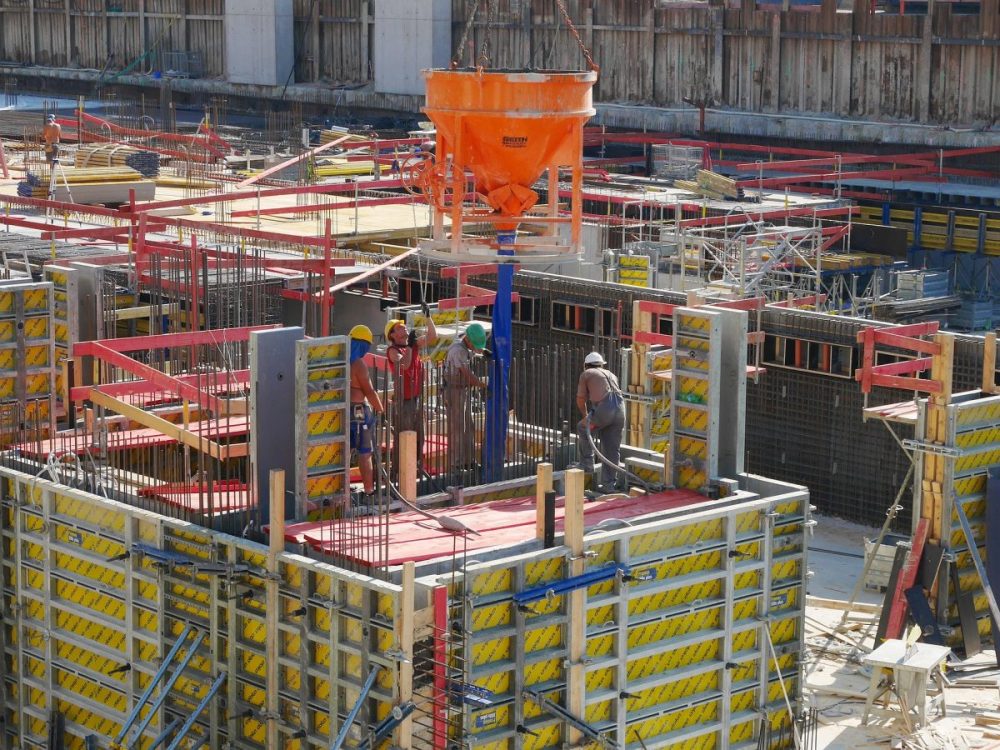Modular construction can help to solve the UK housing crisis
Modular Construction is not a new concept, but has been used all around the world for decades. In the UK this method of construction has recently seen a resurgence in popularity, with both housebuilders and policymakers starting to realise its potential to solve many of the housing challenges faced by the British Construction Industry today.
This process of building uses modular components, such as floors, walls, ceilings, rooves, and even entire bathroom units. These are produced on mass in a factory, before being transported to the site as a kit for assembly. The kit arrive already finished, with wiring and plumbing already installed, minimising the technical work required on the jobsite.
The benefits of modular construction are tangible, allowing more environmentally friendly processes and achieving a greater savings over conventional bricks and mortar techniques.

Solving the housing crisis
The UK Government is well aware of the need to improve the current housing situation in the UK. A lack of available housing is driving up prices, making it incredibly difficult for first-time buyers to get on the property ladder.
Westminster has pledged that 300,000 new homes will be built every year by the mid-2020s. This is an ambitious target, with the number of new builds in 2017/18 standing at just 195,290. While this was 2% higher than the previous equivalent period, the growth rate before that was 15%, showing a slowdown in homebuilding. The target includes building 100,000 of the new homes using modular construction – a substantial increase from 15,000, which is are currently constructed annually.
To help meet their targets, the government is turning in favour of modular construction, which is reported to reduce house construction time by two-thirds over traditional building practices. This speed is achieved as the components are created in a controlled factory environment, designed specifically to maximise efficiency with hi-tech machining, robotics and automation. This is in contrast to the often unpredictable and hectic nature of building sites, which reduce productivity.
Factory operations can also continue around the clock, with less risk of neighbouring complaints of noise and disruption, while reducing worksite safety hazards.
Offsite construction is unaffected by the weather and other environmental delays.
Modular methods can knock significant time off completion dates.

Saving money and reducing environmental impact
A big challenge facing the property industry is the cost of building houses. In the first half of 2019, the average cost of building a traditional housing unit increased to over £150,000, with the increasing cost of materials a major factor.
With property being produced at a faster rate, both builders and their clients stand to make considerable financial savings using modular construction methodologies.
A shorter build time substantially reduces labour costs and commercial developments are up and running far sooner.
It is estimated that the actual practice of offsite production can reduce costs by up to 25% compared to traditional techniques.
Chapman Taylor reports that builders can save waste removal costs as construction waste can be reduced by up to 50% by using offsite methods, reducing the amount being sent to landfills.
The end customers also benefit from the environmental advantages of modular construction, with their property being well made in efficient and consistent factory environments that have quality control processes in place.
Modular components are generally better insulated and more airtight than traditional methods. This means that these properties will maintain heat better, reducing long-term spend on energy. It is predicted that modular methods could reduce energy consumption by up to 20%.

Addressing the skills shortage
Modular construction is also helping to tackle the property sector’s growing skills shortage.
Britain has an ageing workforce, where just 12% of construction workers are under the age of 24. The industry has been heavily reliant on overseas workers, who may find it more complicated to work in the UK once the country Brexits out of the European Union. This means that there might not be enough staff to keep up with the growing demand.
Modular construction will help to solve this by reducing the number of skilled workers required on the jobsite.

The future of housebuilding
The property sector is enormously important part of the UK economy with a market value of over £1,600 billion, which is 7% of British GDP.
A healthy property industry results in a healthy economy, and this is why the British Government is motivated to fix the issues the industry currently faces.
Modular construction is one of their proposed solutions, with the method cited in the government whitepaper ‘Fixing our broken housing market’ as one of the main ways of tackling the crisis. This report explicitly states that there will be support for offsite manufacturing techniques, with efforts made to ensure such projects can access adequate funding.
The government is clearly committed to improving the country’s housing situation and is encouraging any form of innovation that could help tackle the issues. The R&D Tax Credit scheme is one example of this, with innovating companies able to claim back a proportion of their R&D investment in the form of tax credits.
If your company is investing in research and development you need to talk to the advisors at MPA to see if you qualify for the R&D Tax Credit scheme.





























